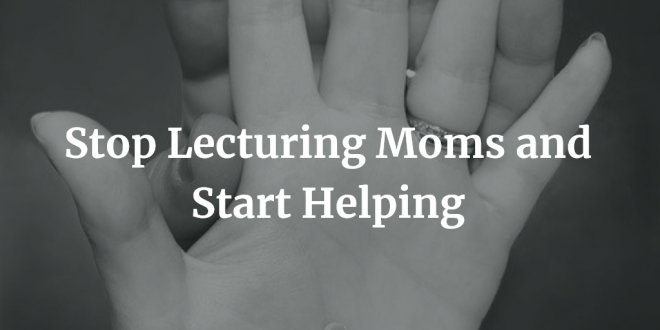I saw the title of the following article on HuffPost Parents: How To Reconnect With A Resentful Partner After You’ve Had A Baby.
I don’t think any wife/mom who has had to deal with this situation will have anything but a rather negative reaction to this article. When you look through the comments on Facebook, most said that the resentful partner, not the caregiver, needs to deal with this. Here were just a few of the (totally justified and on point) comments:
- “.. instead of the non birth partner feeling slighted couldnt they speak up & offer help with the babies needs? You know help with the load & allow the birth parent sometime? “
- ” way to give the birth parent yet even MORE pressure to keep it all together. “
- ” a new mom is in no way responsible for helping a parenting parter manage their big feelings “
You see, here’s the thing. Our society is woefully uneducated and unprepared to deal with abuse. And dealing with a partner who isn’t pitching in after you just had a baby, and is causing you to yet further tend to their emotional needs, is being emotionally abusive. That is one of the ways we aren’t prepared for abuse: a woman has to have physical bruises to prove abuse–and even then, our culture is likely to blame her, if not fine her. Having resentment looming in the air is awful when you are trying to tend to a family, let alone a highly demanding new baby. It’s hard to do things with a grumpy pants around. It would sincerely be better for the caregiver to be totally alone in this situation.
But we can’t go after the abusive person. We as a culture find that too aggressive, too unkind, too … what do you want to call it? So because we can’t just directly go after ugly behavior, we have a million other different ways of saying and dealing with things, all of which end up being unhelpful in some way. We will say others need to “learn to set their boundaries,” but we won’t go after the person repeatedly violating boundaries. The effect is that you are lecturing someone who HAS been setting their boundaries over and over again–you are blaming them.
In this case, we are now asking the caregiver to add yet more to her duties, to deal with a grumpy partner, so she can soothe him, so she can get the help she needs. Do you see how rugged individualism in fact fails us? This is why I wrote Towards Liberalism: A Challenge to Objectivist Ethics. Rugged individualism, with Ayn Rand’s Objectivism driving so much of it, fails us in so many ways. We proudly announce, “only we can do anything about our situation!” How about this: we challenge people’s thought patterns and ethics that engender this bad behavior. We need to start putting pressure on people behaving badly, not put yet more pressure and give yet more “guidance” to the people on the receiving end of people behaving badly.

I propose when it comes to this kind of thing that we validate feelings but not behavior. So validating feelings looks like this, “I see how exhausted you are after just giving birth.” It may also look like this, “It can be hard to not have sex after your wife just had birth.” But we still take people to task about their errant thinking and behavior. “You need to pitch in when your wife just had a baby and just deal with the fact that you cannot currently have sex.”
Setting boundaries, by the way, ends up looking a lot like making other people seem really resentful and grumpy. It’s kind of sort of what boundaries do.
See Towards Liberalism: A Challenge to Objectivist Ethics.
I do age-related child developmental research. I document the “stages” children go through, where they fall apart for a period of time then have a burst of new ability. See the main page of this site: The Observant Mom! See Misbehavior is Growth.
